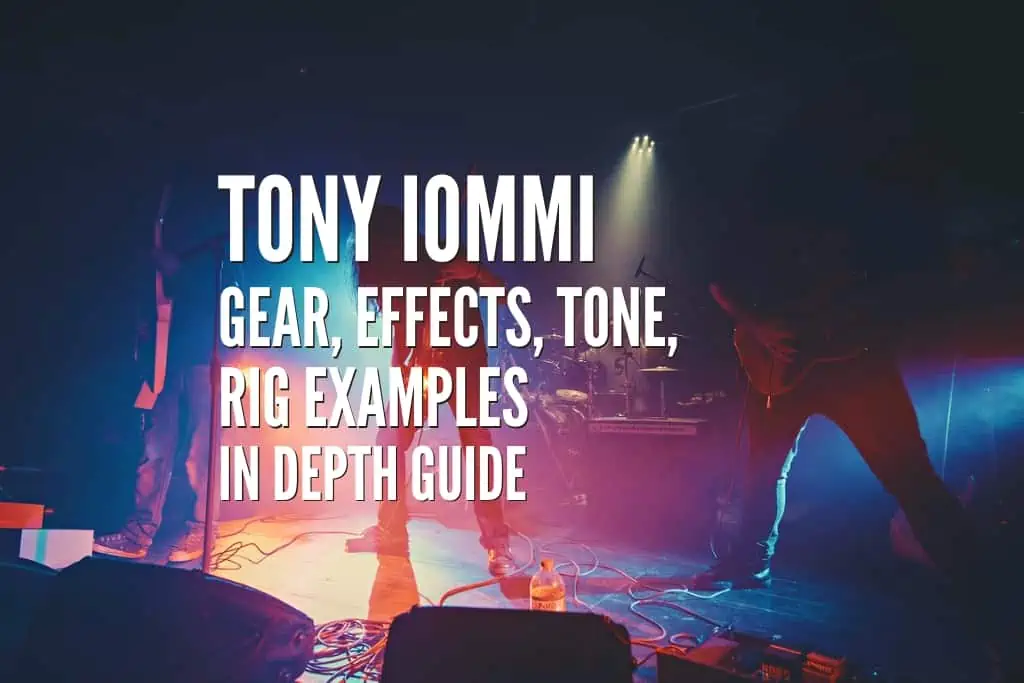When talking about legendary rock guitar tones, Tony Iommi is a hard name to beat. The legendary shredder, heavy metal pioneer, tone master, and virtuoso musician has been creating intimidating and powerful guitar tones since his early days in the 70s with Black Sabbath. With his musical approach, his guitar tones, and unique playing style, he has become a benchmark for heavy metal music and inspired and influenced many generations of guitarists.
As the godfather of heavy metal, Tony Iommi’s signature sound defined the genre. His riffs, licks, tones, and playing style drew the lines of a new type of music in rock history. His playing ability and innovative approach made him one of the best guitarists of his era as well as an idol for many musicians.
Iommi’s story is also very interesting as on his last day in a factory he was working in; he lost the tips of his middle and ring fingers on his right hand, which he uses for fretting as he is left-handed. He uses plastic fingertips to play, which also contributed to creating his unique playing style and sound.
Throughout his career, Iommi has experimented with many different guitars and gear, but he always had his main equipment, which he stayed loyal to. His main guitar was always a Gibson SG, which he customized a bit. He used many different pedals and amp combinations, but the amp he was settled with was the custom Laney, which the brand produced specially for him.
So in this article, I will go through the man instruments and gear Tony Iommi used throughout his career and talk a bit about how to capture his tone and his approach to replicate his iconic tones. So grab your axe, and let’s start to examine that killer tone of Black Sabbath!
Signature Guitars
Gibson Tony Iommi SG Special
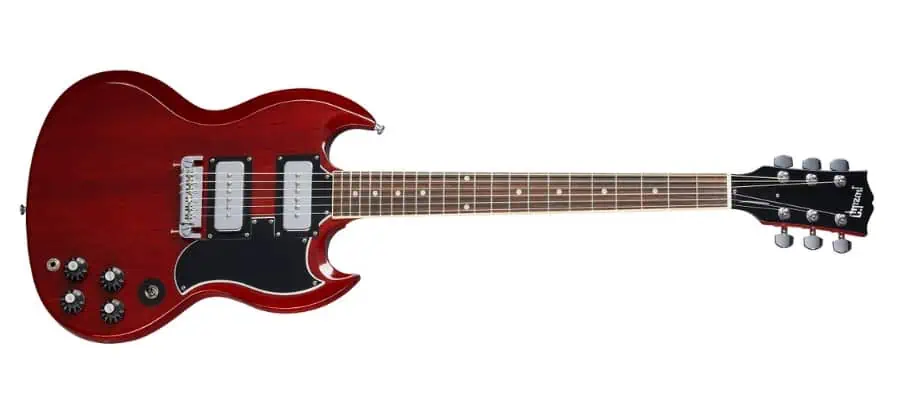
Tony Iommi’s most renowned guitar is his “Monkey” Gibson SG Special. The guitar is based on the mid-1960s SG Special and features a mahogany body with a rosewood-capped mahogany neck and P-90 pickups, along with an adjustable wraparound bridge and black witch hat knobs. This guitar was Tony’s main instrument during the Black Sabbath’s 1970s recordings and shows.
Gibson Custom Shop SG Tony Iommi Signature
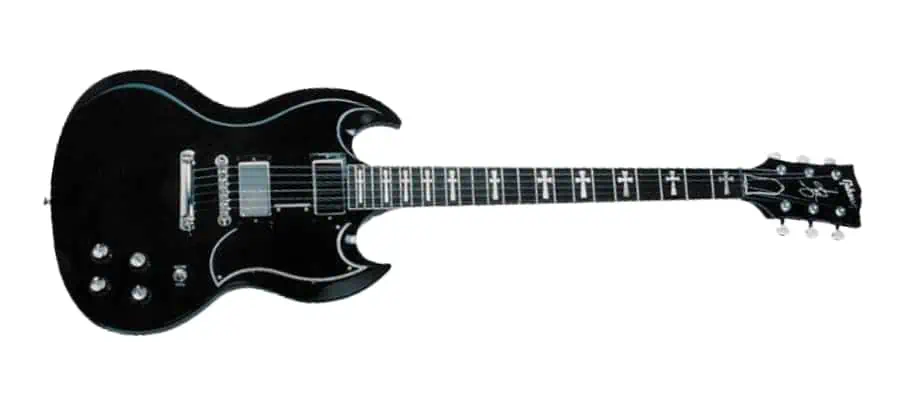
In 1997 Gibson finished building the first prototype of his Custom Shop SG Tony Iommi Signature. The guitar was built with Tony’s specifications and features a 24-fret-neck and four control knobs.
Epiphone Tony Iommi SG Special
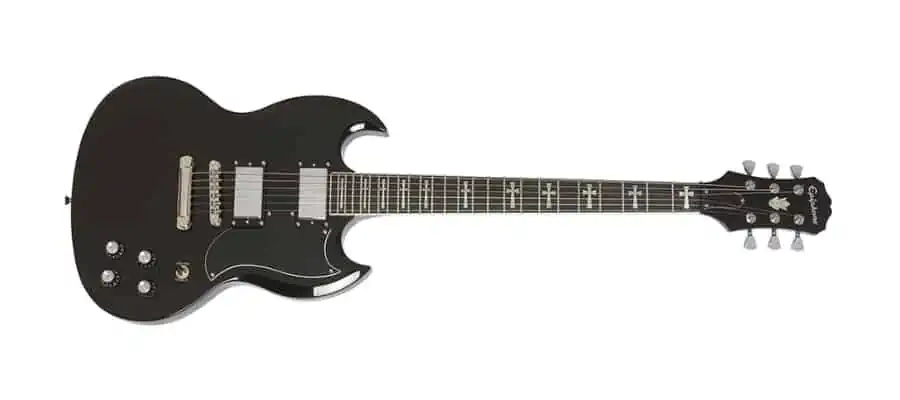
The more affordable version of the Gibson Tony Iommi SG Special is the Epiphone Tony Iommi SG Special. This guitar is also based on the special 1960s Gibson SG, aka “Monkey.” It has Epi Pro P-90 pickups, an Indian laurel-capped mahogany neck, CTS pots, and Orange Drop capacitors.
Epiphone Tony Iommi G-400
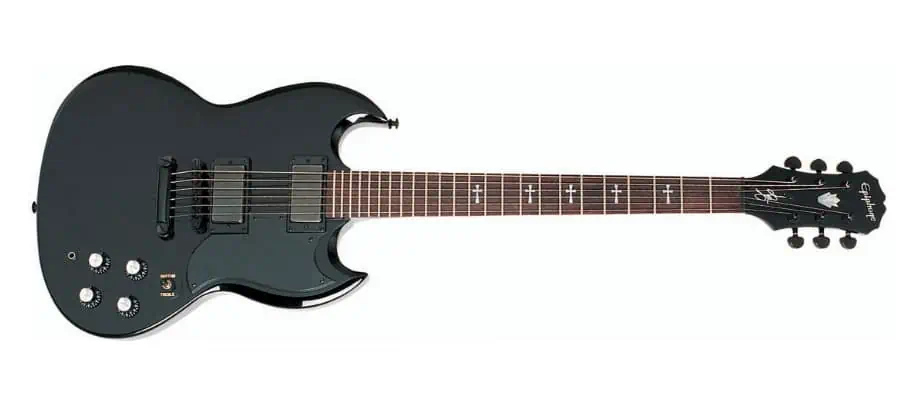
https://www.awin1.com/cread.php?awinmid=67144&awinaffid=1525401&ued=https%3A%2F%2Freverb.com%2Fmarketplace%3Fquery%3DEpiphone Tony Iommi G-400
Epiphone Tony Iommi G-400 is the gothic-looking guitar of Tony that he used during the ’70s and ’80s. The guitar has a solid mahogany body, slim taper mahogany neck, Tony Iommi special humbuckers, rosewood fretboard, and cross-position markers.
Electric Guitars
Epiphone Riviera 12-String
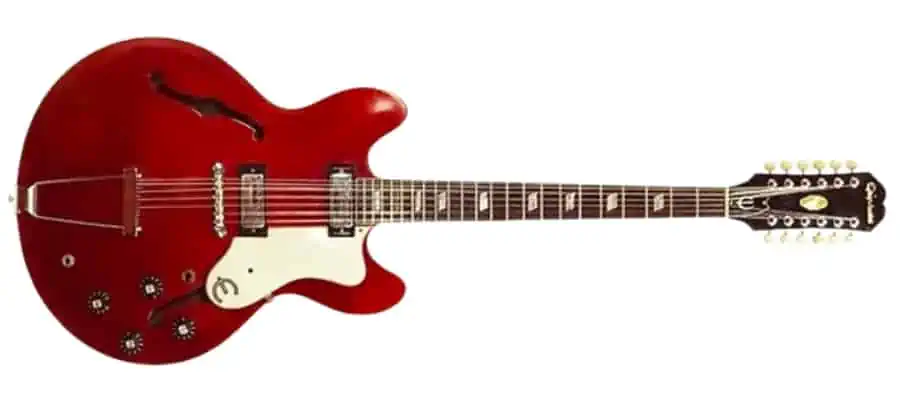
One of the guitars Tony Iommi rarely use is his Epiphone Riviera 12-String, which Epiphone specially built for Tony as there was no model for left-handed players. They cut a new nut, repositioned the bridge, swapped around the saddles, and removed the scratch plate.
Fender Stratocasters
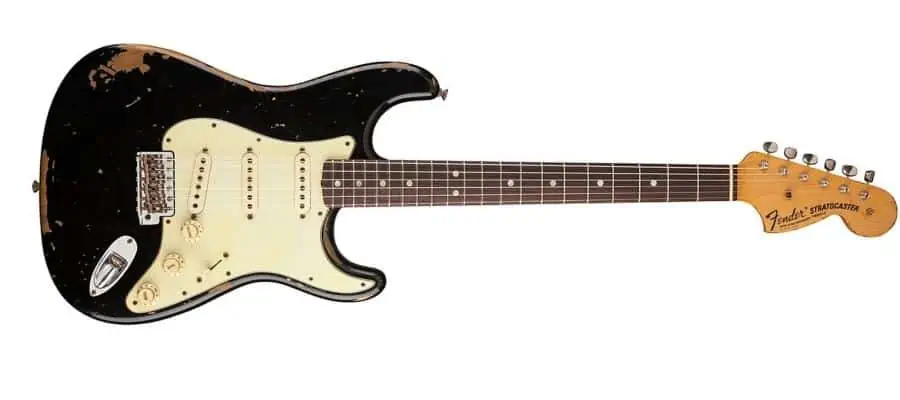
Before switching to Gibson SG, Tony was using a white Fender Stratocaster. But when he was in the studio to record his first album with Black Sabbath, the pickup of the Strat broke down, so he had to switch to his Gibson SG, which ultimately became his permanent guitar.
Gibson Barney Kessel
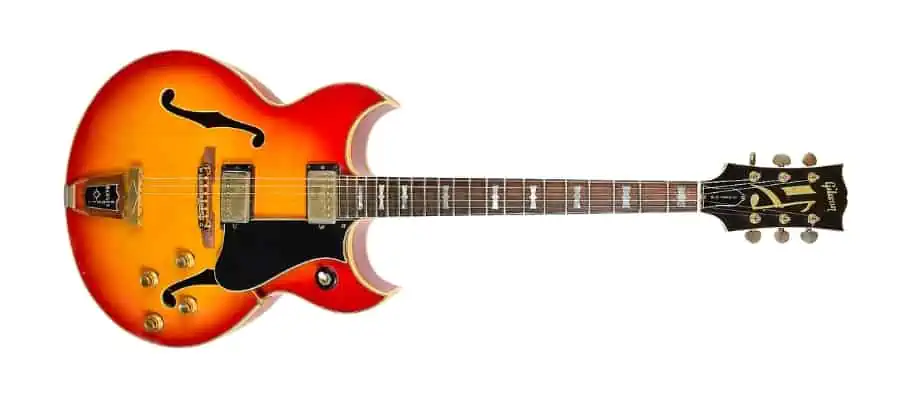
Another unique guitar Tony Iommi has is the Gibson Barney Kessel, which was probably built between 1960 and 1965, as Gibson stopped producing the guitar after 1965. The guitar has a special magnetic field in the bridge pickup, which shines the high-end frequencies and creates quite unusual tones.
Gibson S.G. Standard
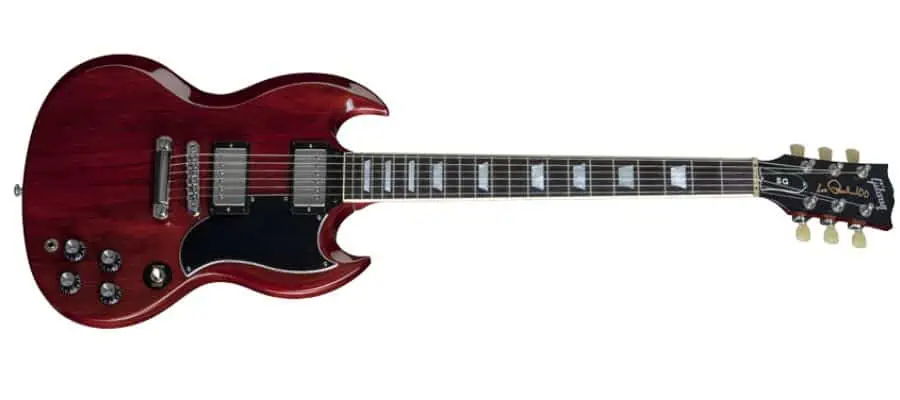
Tony Iommi had two Gibson SG Standard guitars in colors Red and Black. This guitar was used in many recordings and shows. It is 1965 SG Specials and has Gibson P90 and John Birch custom P90 type single coil pickups
Red Gibson SG (Monkey)
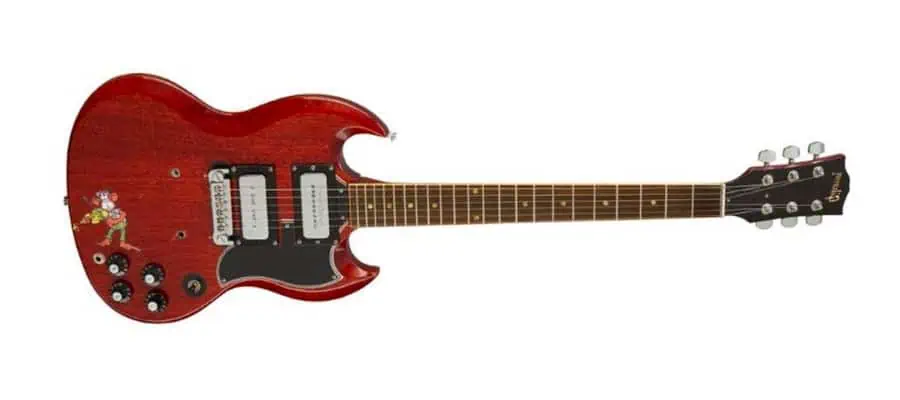
The favorite guitar of Tony Iommi is his Monkey Gibson SG. He used the guitar for a long time until his signature SGs came out, which are already based on this guitar. This red Gibson SG has a P-90 pickup in the bridge position and John Brich Simplux P-90 in the neck position.
Jaydee Custom S.G. (a.k.a. No. 1, The Old Boy)
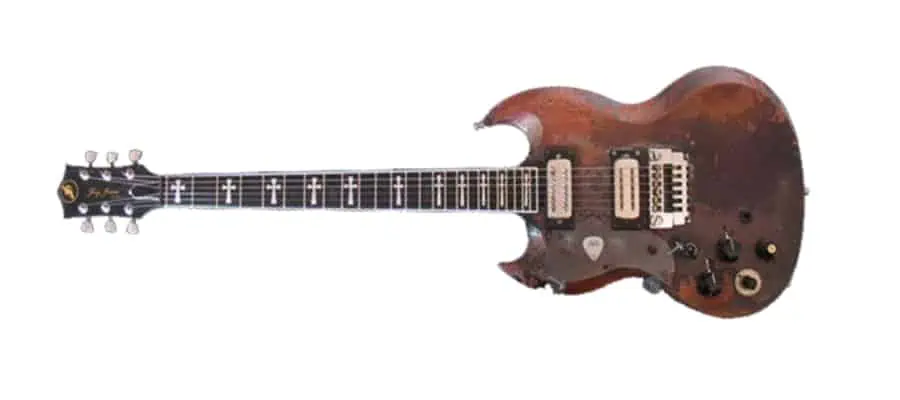
Jaydee Custom S.G. is a special guitar created by the luthier John Diggins during the second half of the ’70s. Tony Iommi first used the guitar for the overdubs in the album Heaven And Hell. After that, it became one of Tony’s main guitars, and he used them mainly in the Born Again era. You can see the guitar in the music videos of songs like “Zero The Hero” and “Thrashed.”
B.C Rich Ironbird
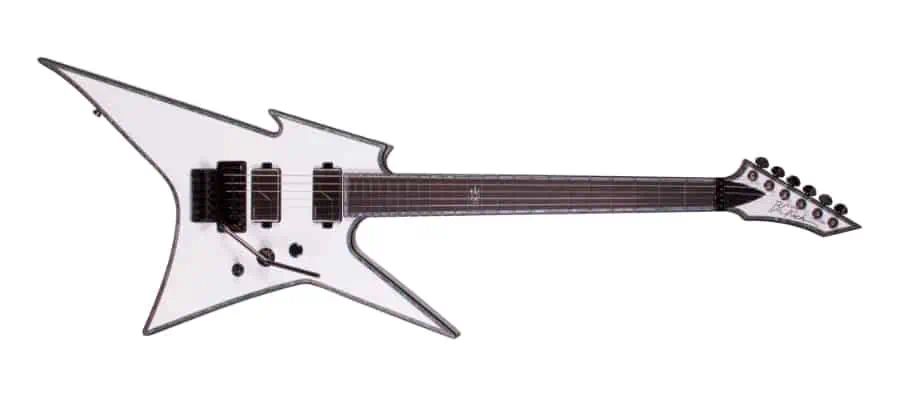
B.C Rich Ironbird was used live and in the studio in the mid to late 1990 by Iommi. The guitar looked quite amazing, but Iommi preferred to go with his SGs instead.
Guitar Strings
La Bella HRS-UL Electric Guitar Strings
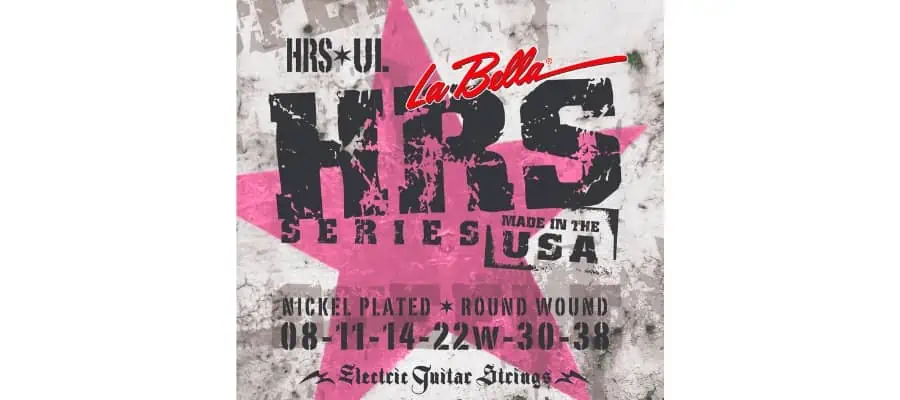
For most of his guitars, Tony Iommi used La Bella strings. On his guitars tuned to D#, he had 008, and on his guitars tuned to C#, he had 009 gauge strings.
Guitar Pickups
Gibson USA Tony Iommi Signature Pickups
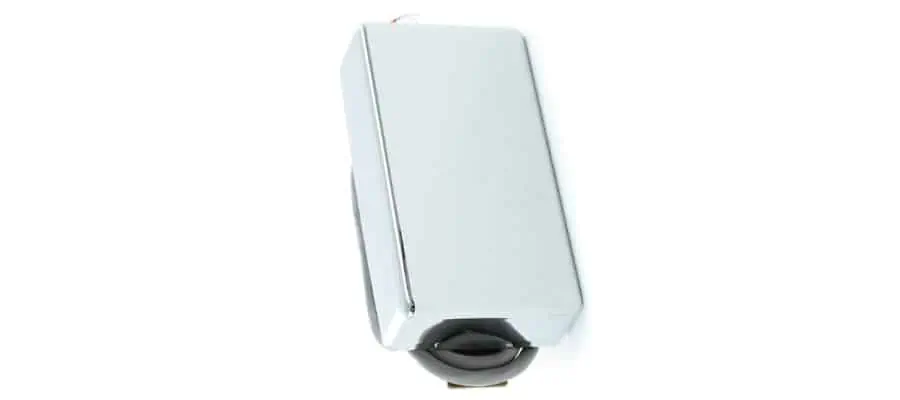
On most of his signature guitars, Tony Iommi has the Gibson USA Tony Iommi Signature Pickups. The pickups deliver a heavy punch, blistering mids, balanced lows, and sharp high-ends. It has a special wire winding for increased sustain and wax-epoxy potting to avoid feedback. It is one of the main reasons behind the unique Black Sabbath sound.
Gibson P-90
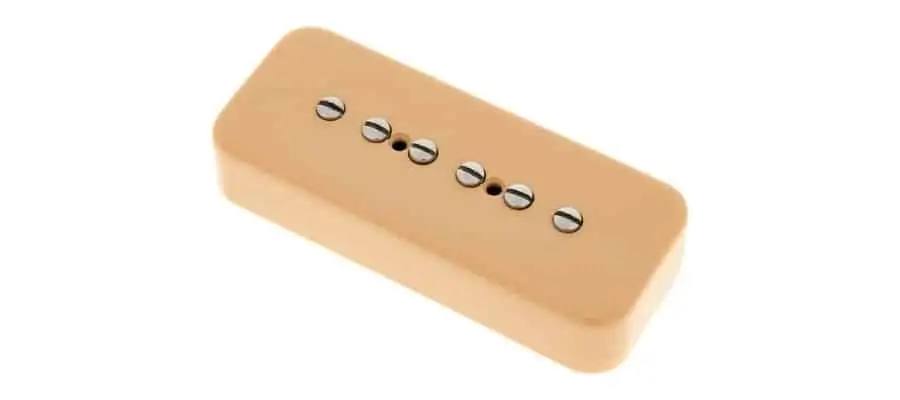
Before his signature custom design, Tony Iommi had P-90 pickups on his Gibson SGs. He liked the sound and tone of P-90s, which is the reason his signature pickup is based on these models.
Amps
Laney GH100 Tony Iommi Signature
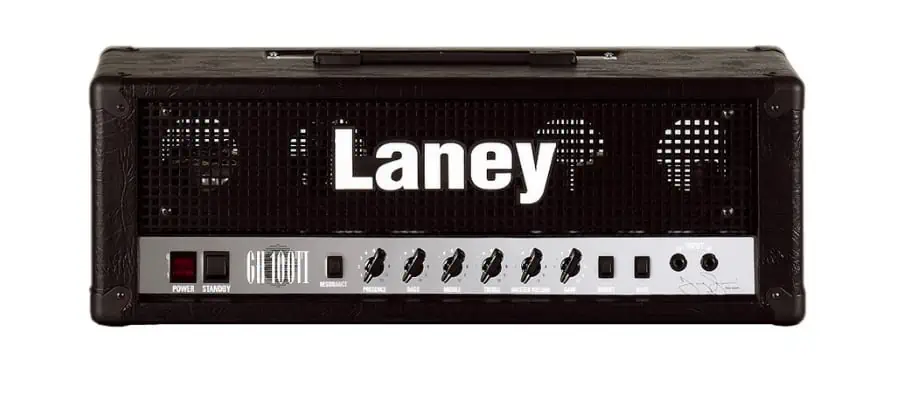
Laney GH100 Tony Iommi Signature is the first fruit of Tony Iommi and Laney’s collaboration. As the first signature amp for Tony Iommi, the amp was used extensively since the mid-’90s in recordings and live shows. He used the amp with Laney GH TI 412S Tony Iommi Signature Cabs.
Laney TI100 Tony Iommi Signature
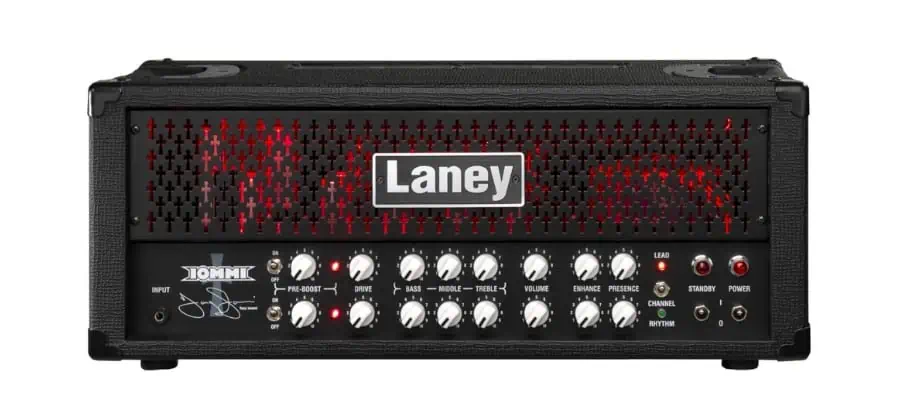
Laney TI100 Tony Iommi Signature is the second 100-watt amp designed for Tony Iommi by Laney. He uses this amp mainly in live shows. The amp is a bit more aggressive, with a barking and mid-heavy tone, compared to the previous model. Released in 2012, the amp also has 2 channels, a 6L6 output, and a 3-band EQ, which are the physical upgrades from the previous model.
Laney TI15-112 Tony Iommi Signature
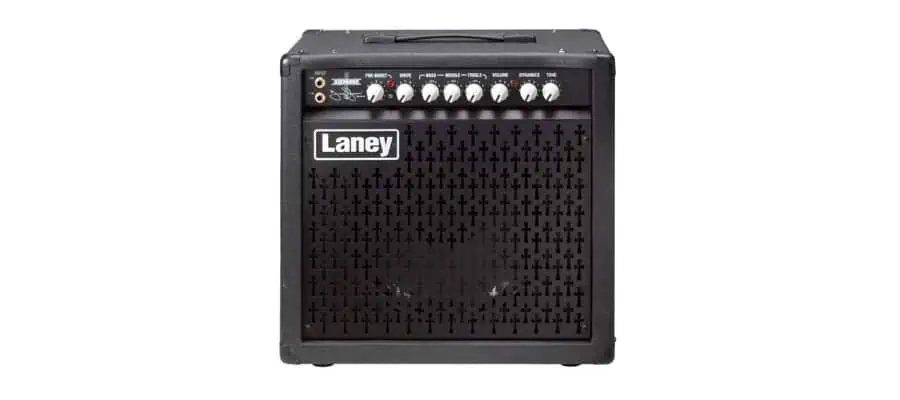
Laney TI15-112 Tony Iommi Signature is the backstage amp of Tony Iommi, which is created for him by Laney. This compact signature model is used by Iommi for warm-ups, jams, and everything in the studio.
Laney LA100BL Supergroup MK1
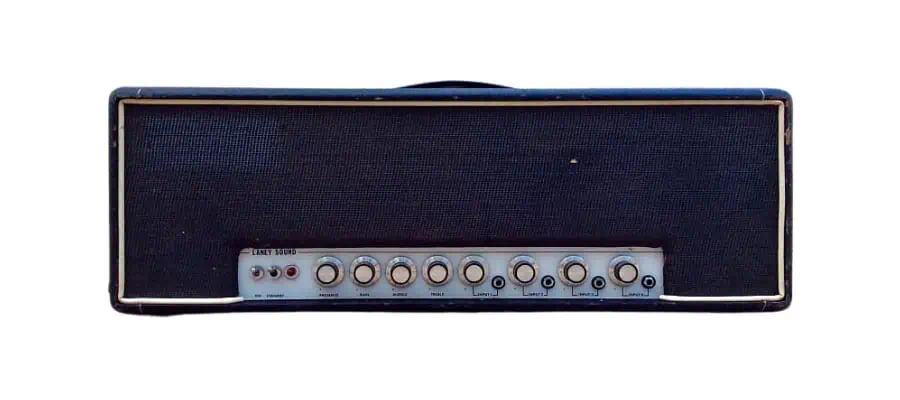
Another amp heavily used by Tony Iommi is the Laney LA100BL Supergroup MK1, which he occasionally uses on the stage and also in album recordings like Paranoid. It is one of the amps that created the Black Sabbath sound.
Engle Powerball
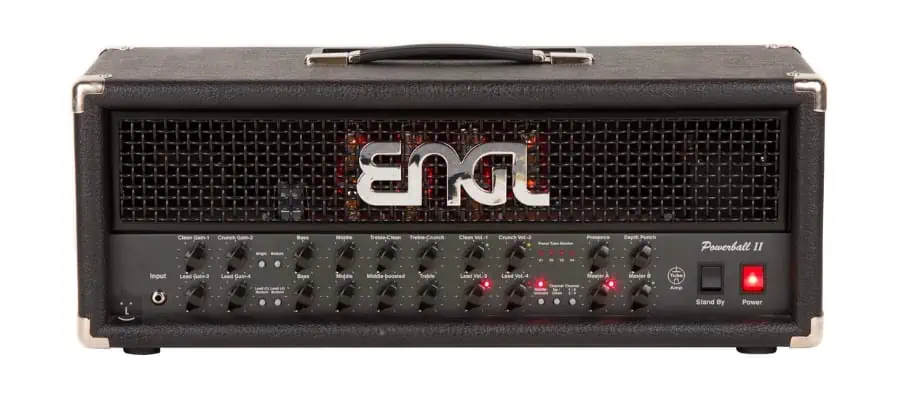
During the shows in 2009, Tony used Engle Powerball amps. He only used the preamps.
Marshall JCM 800
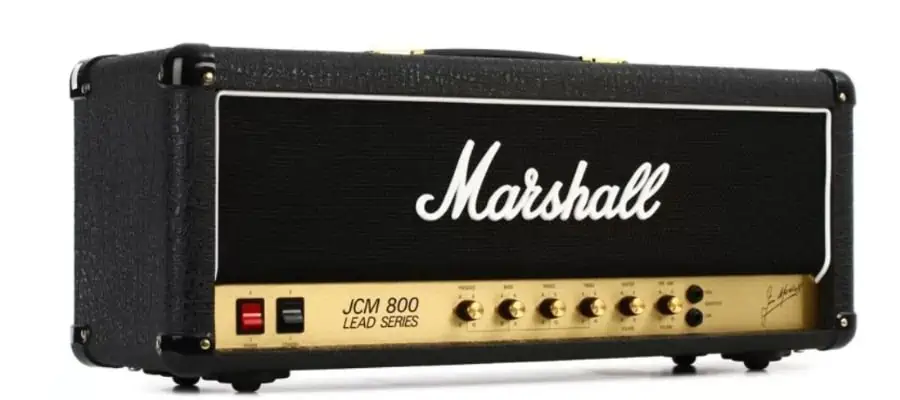
Just like most rock guitarists, Tony Iommi also had his time with the famous Marshall JCM 800 amps. He still has the amp and uses it for some recordings and also in the live shows combined with other amps.
Marshall 50W Plexi
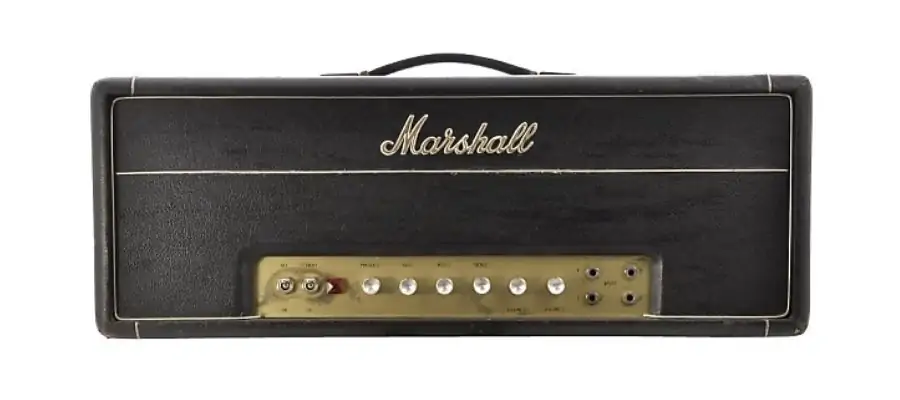
Tony Iommi was using a Marshall 50W Plexi in his early days as a guitarist. He had it in the late ’60s before entering the studio with Black Sabbath.
Laney Klipp
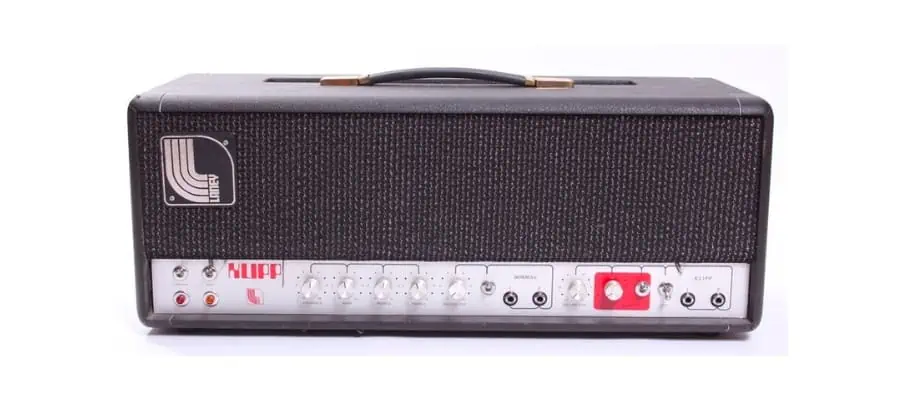
For the recordings of the Master Of Reality, Tony used a Laney Klipp amp combined with his other gear.
Marshall Super Lead 1959
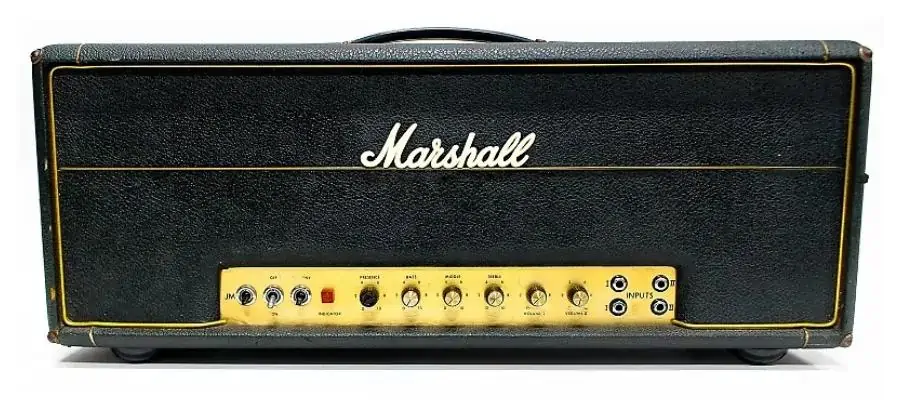
For the Heaven And Hell and Mob Rules albums, Tony used a Marshall Super Lead 1959, which was modified by John Dawk Stillwell, who designed a new circuit for the amp. He added a master gain control and an extra tube to the device.
Mesa Boogie Mark IIB Coliseum
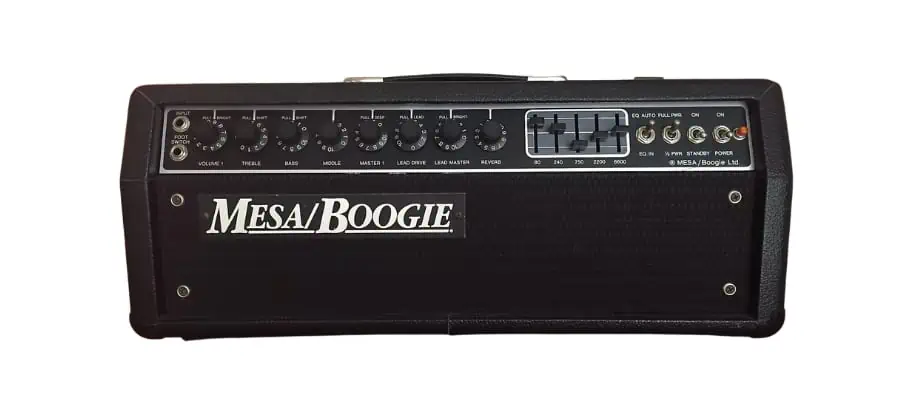
In around 1982, Tony Iommi had his time with Mesa Boogie Mark IIB Coliseum, and he used it occasionally until the early 90s.
Vox AC30
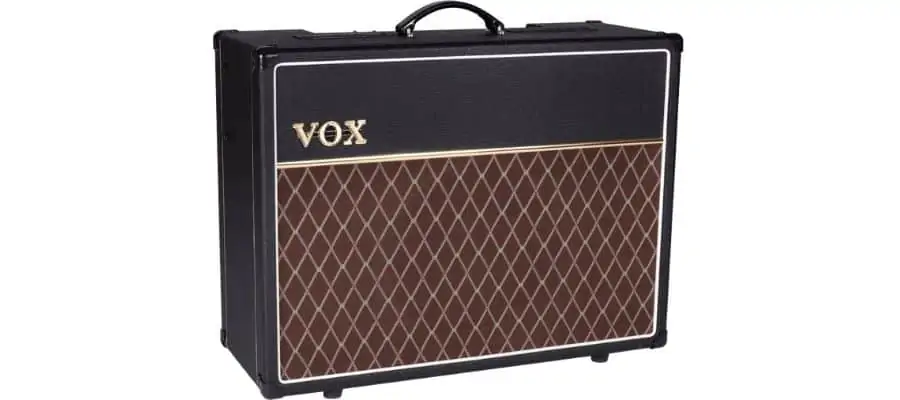
Tony tried out the Vox AC30 in 1976 and used it for some songs and parts in the album Technical Ecstasy.
Cabs
Laney GH TI 412S Tony Iommi Signature
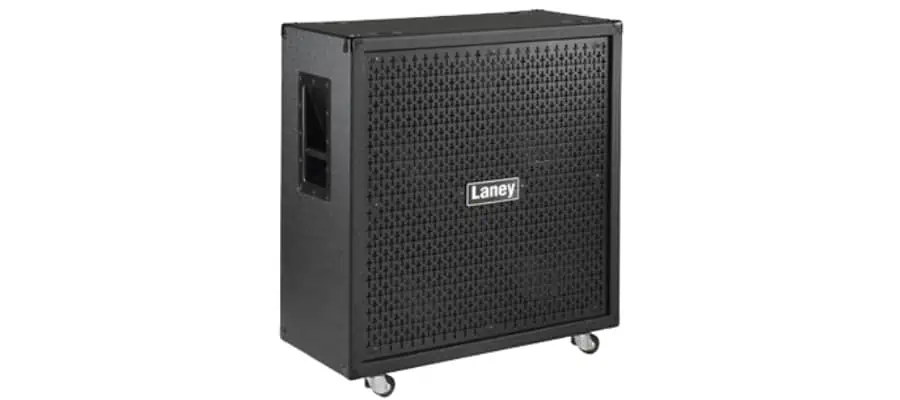
With his signature Laney amps, Tony Iommi uses Laney GH TI 412S Tony Iommi Signature cabs.
Laney LA100BL Supergroup
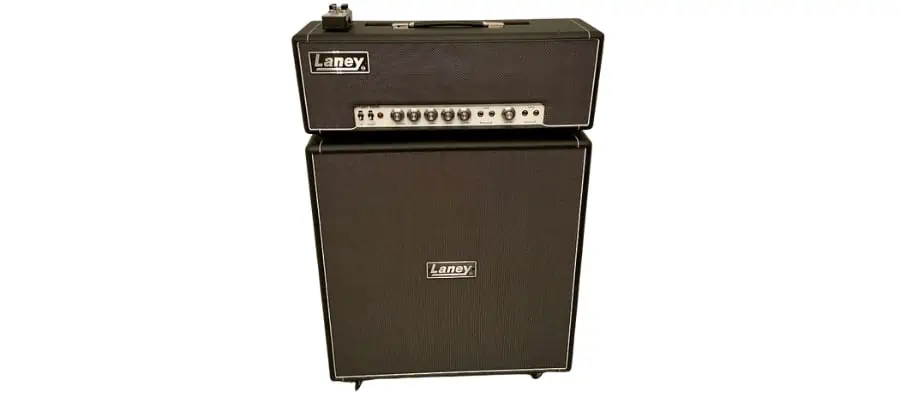
Laney LA100BL Supergroup cabs were used combined with the Laney LA100BL Supergroup amplifier.
Laney LA412 Cabinet
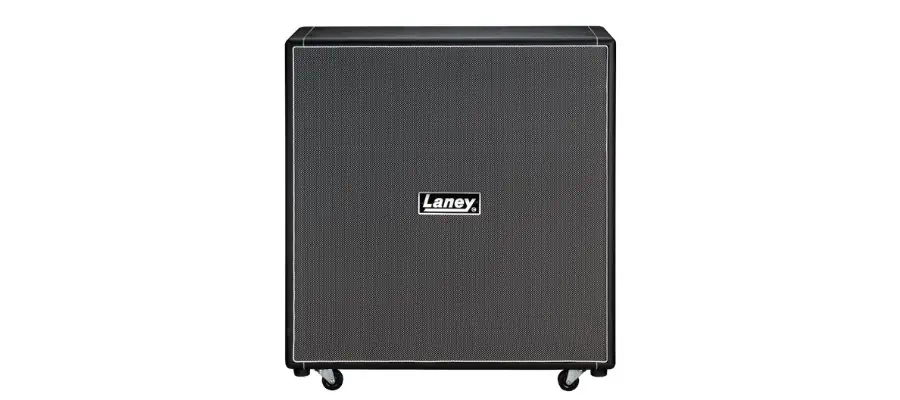
https://www.awin1.com/cread.php?awinmid=67144&awinaffid=1525401&ued=https%3A%2F%2Freverb.com%2Fmarketplace%3Fquery%3DLaney LA412 Cabinet
Laney LA412 Cabs are used with Iommi’s Laney amps on the stage.
Effect Pedals
Dallas Rangemaster Treble Booster
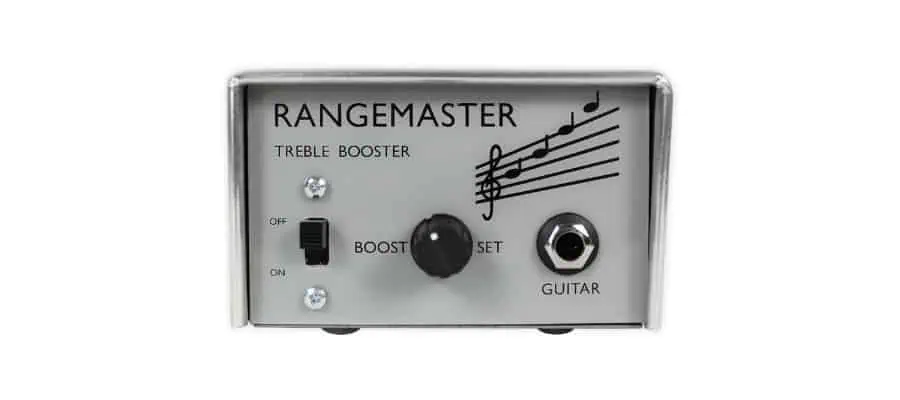
Tony Iommi was using a Dallas Rangemaster Treble Booster in his early days with Black Sabbath. The roadie of Tony customized the pedal to add some more gain to it. Later, during the recordings of the Heaven And Hell album, John Stillwell threw away the pedal without Tony knowing it.

Analogman Beano Boost Treble Booster
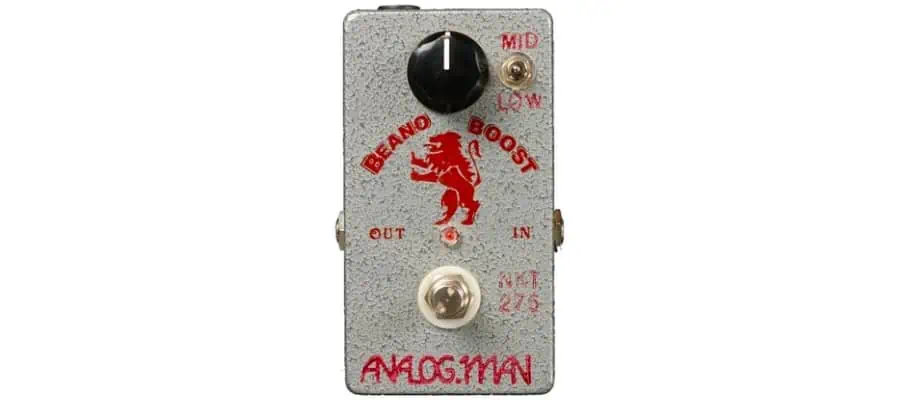
In 2001, Tony started using an Analogman Beano Boost Treble Booster, which was actually the replacement for the Rangemaster after many years.

Tycobrahe Wah Pedal/Chicago Iron Parachute Wah
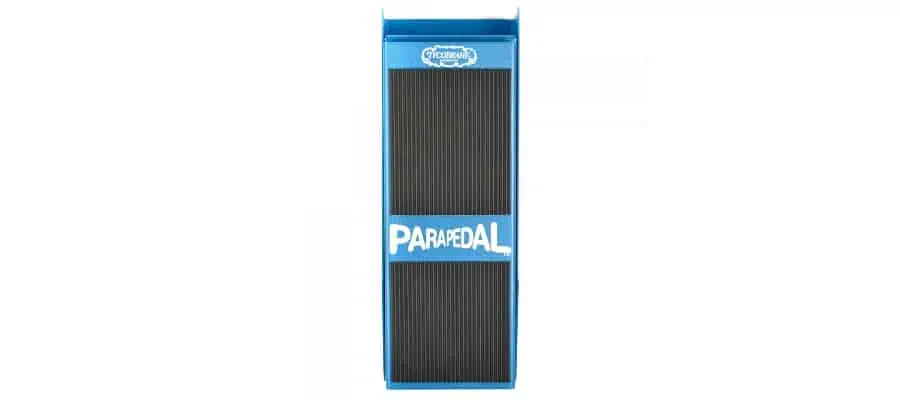
During the first era of the Black Sabbath, Tony had a Tycobrahe Wah Pedal. Later he continued with the Chicago Iron’s recreation of the Tcobrahe.
Chicago Iron Parachute Wah is the replacement for the Tycobrahe Wah Pedal.

Tycobrahe Octavia
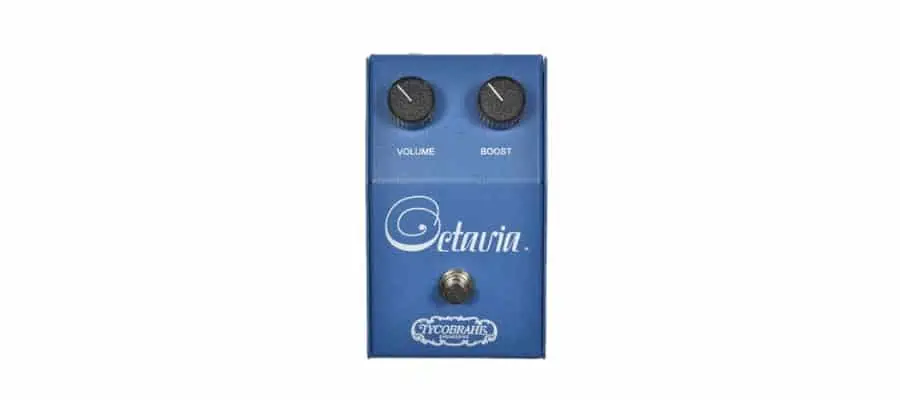
Again, in the early days of Sabbath, Tony’s pedalboard had a Tycobrahe Octavia for his octave effects.

Laney Black Country Customs TI Boost
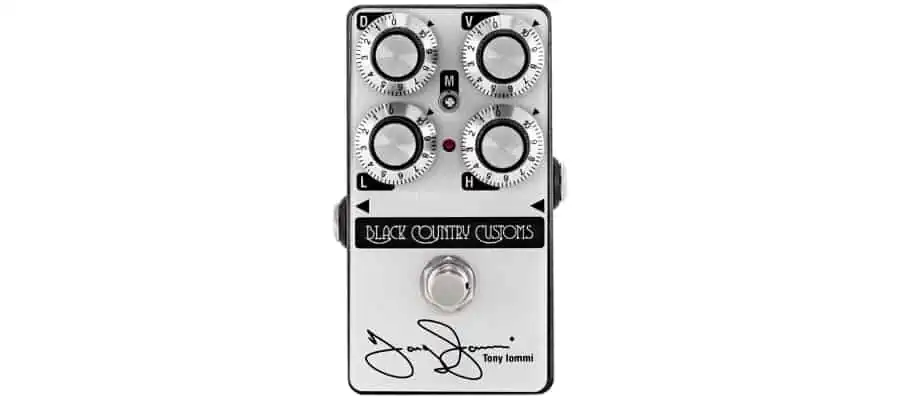
As Tony Iommi is a fan of Laney amps and gear, he also has a special Laney Black Country Customs TI Boost in his pedalboard that he uses with his signature Laney amplifier models.

Boss RCE 10 Chorus Ensemble
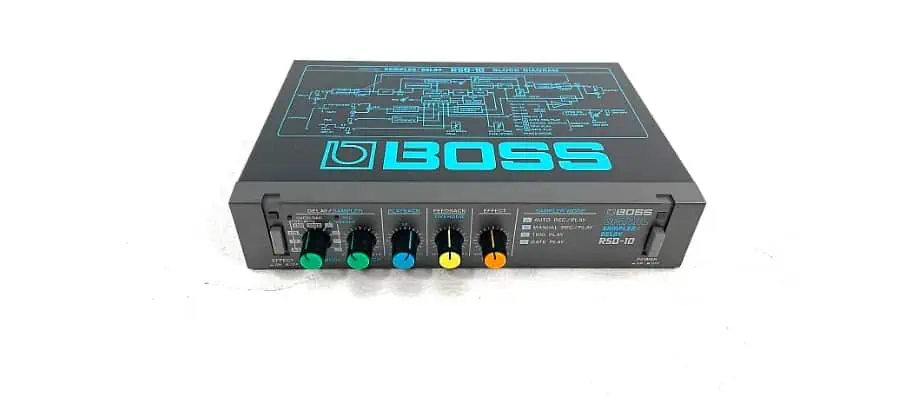
In his recent pedalboard for live shows, Tony Iommi has a Boss RCE 10 Chorus Ensemble.

Boss OC-3 Super Octave
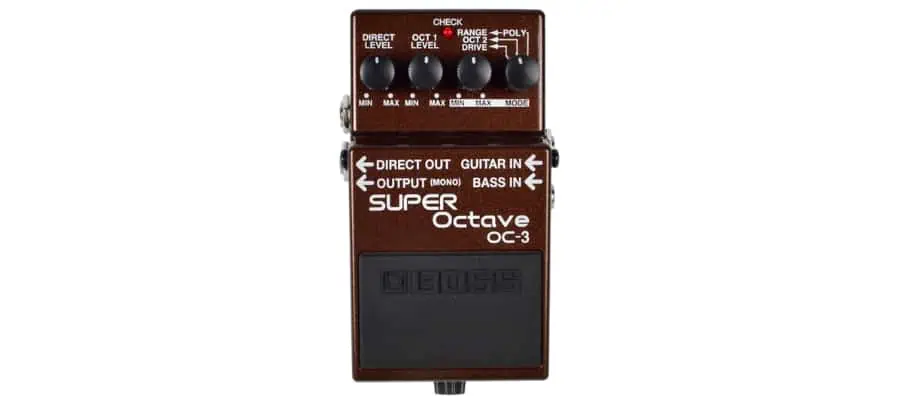
Boss OC 3 Super Octave is a member of the latest pedalboard of Tony Iommi, which he uses on the stage for songs like Paranoid.

Boss OD-1 OverDrive
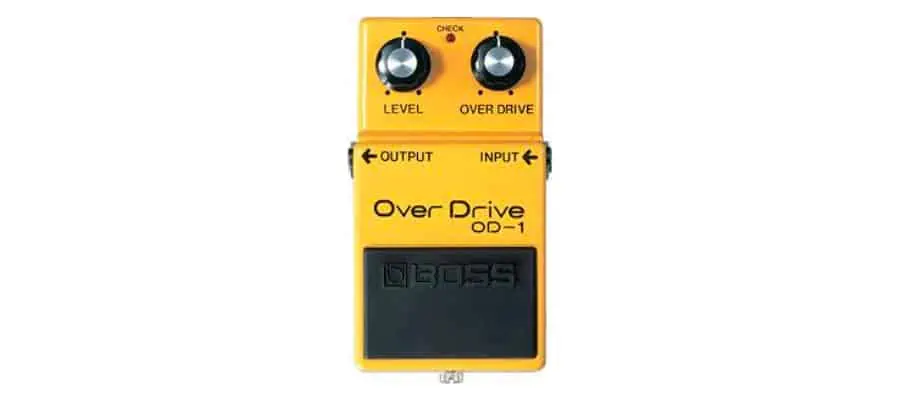
For some extra gain to add to his tone, Tonu has a Boss OD-1 OverDrive in his studio pedalboard.

Boss DD-3 Digital Delay
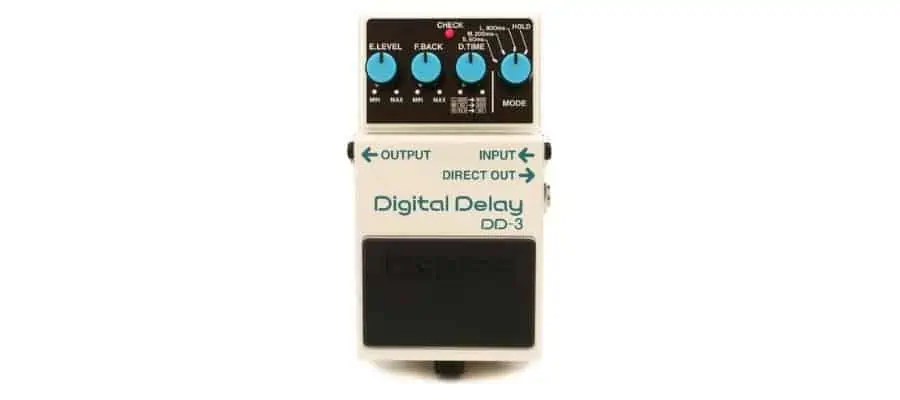
In his studio pedalboard, Tony Iommi has a Boss DD-3 Digital Delay, which he uses for his recordings.

Jim Dunlop Rotovibe
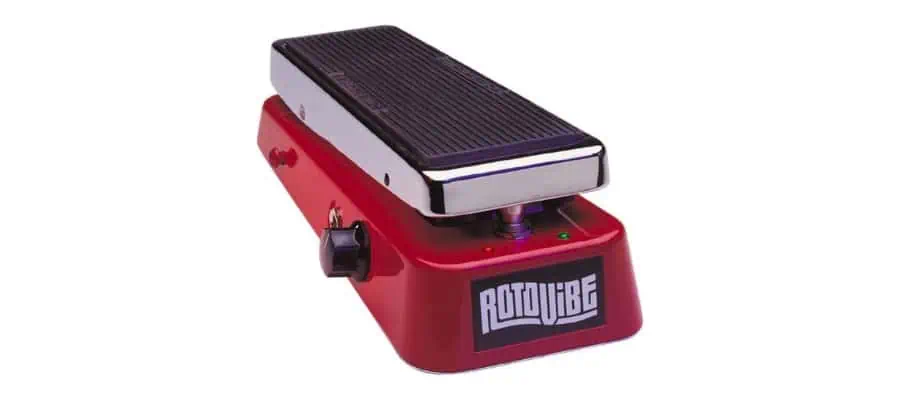
Tony Iommi uses a Jim Dunlop Rotovibe in his studio and on the stage.

MXR M101 Phase 90
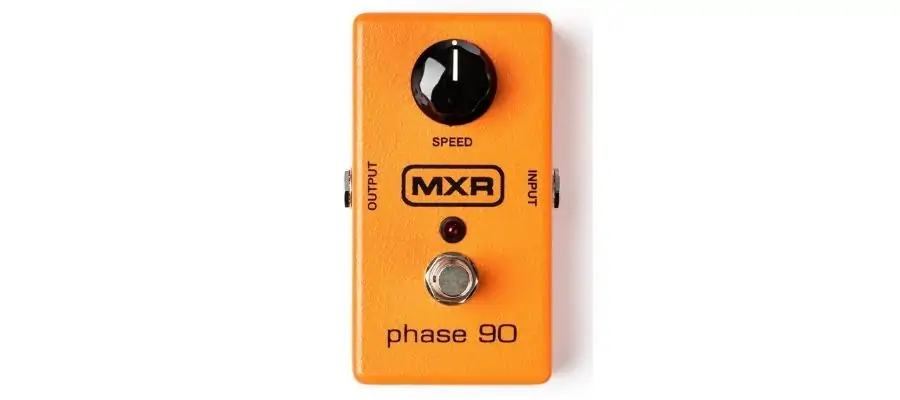
For the phaser effects, Tony Iommi prefers to go with the famous MXR M101 Phase 90.

MXR Stereo 15 band rack EQ
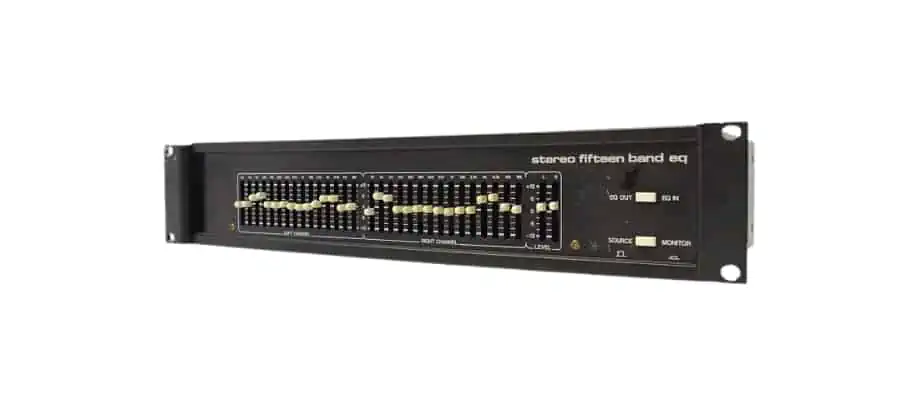
As his EQ pedal, Iommi’s pedalboard features an MXR Stereo 15 band rack EQ.

Korg DTR 1 Rack Tuner
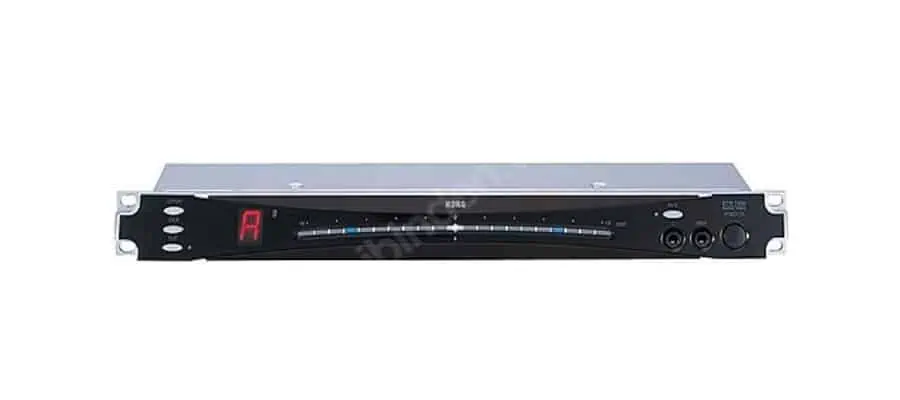
Tony Iommi has the Korg DTR 1 Rack Tuner, which he uses for tuning his guitars on the stage.

Peavey AddVerb III Reverb
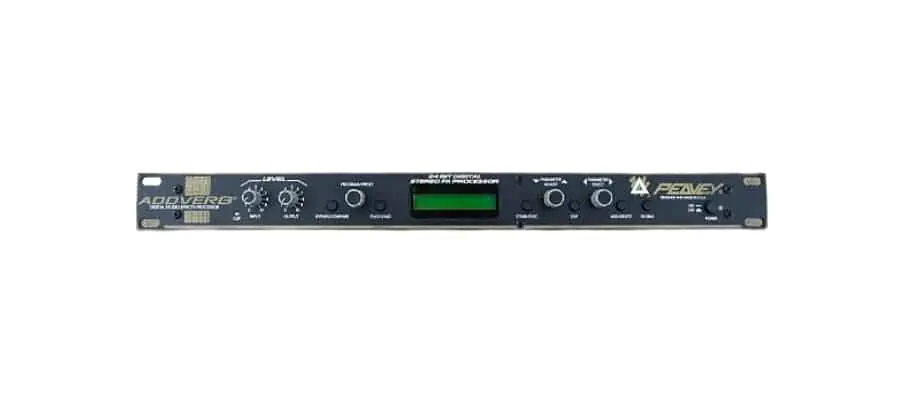
The reverb pedal of choice for Iommi is the Peavey AddVerb III Reverb. He does not use the reverb effect often, but he has the pedal for any case.

Line 6 MM4 Modulation Modeler
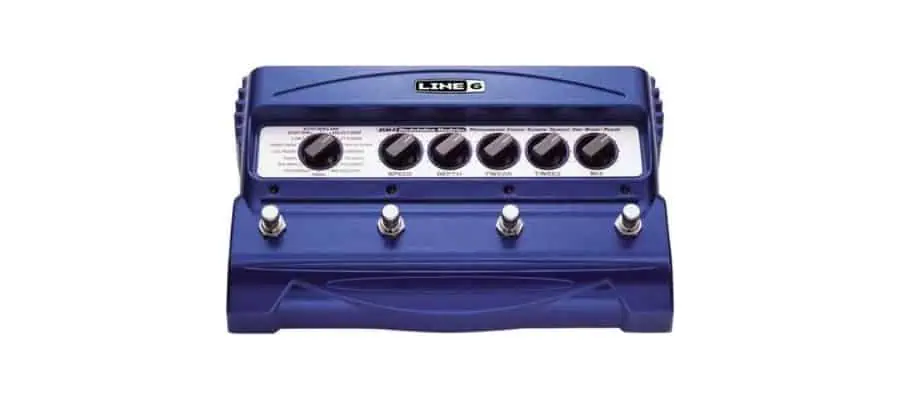
Line 6 MM4 Modulation Modeler is part of the Black Sabbath collection, as Iommi used Line 6 MM4 Modulation Modeler for the Heaven And Hell tour.

Ibanez TS9 Tube Screamer
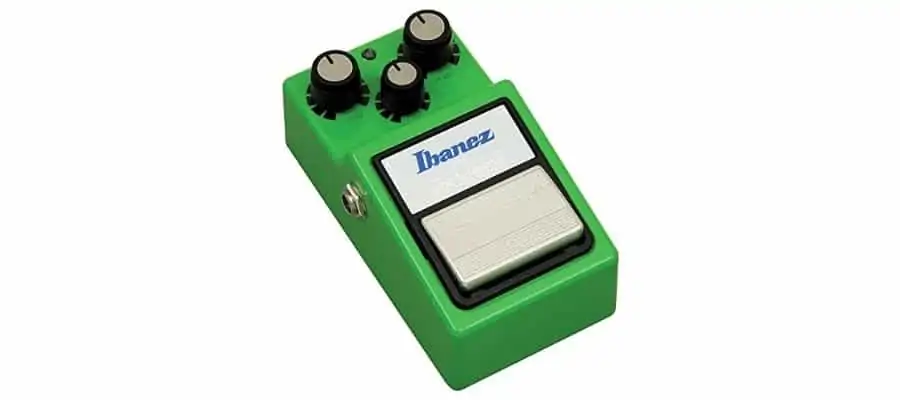
Tony Iommi goes with the iconic Ibanez Tube Screamer for the extra gain, but the pedal is modified to have more gain than usual.

Music Accessories
Dunlop Picks
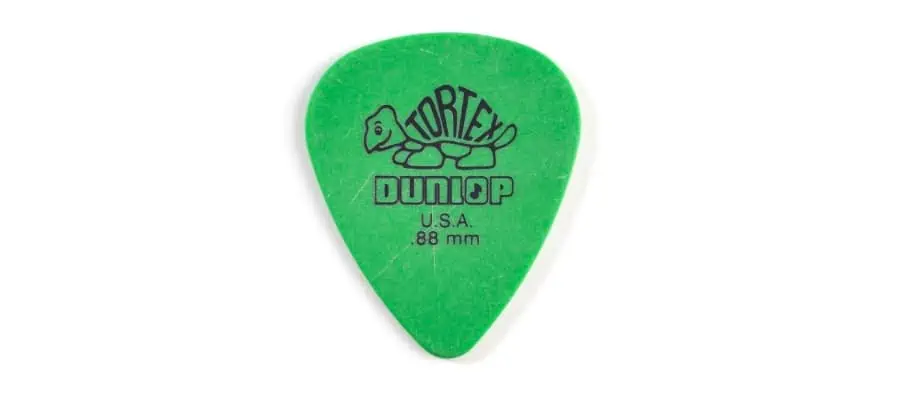
Tony Iommi likes to play with Dunlop picks. He prefers Dunlop Tortex Standard 0.88mm Guitar Picks and Dunlop Delrin 500 0.96mm Guitar Picks.
Schaller 456 Bridge
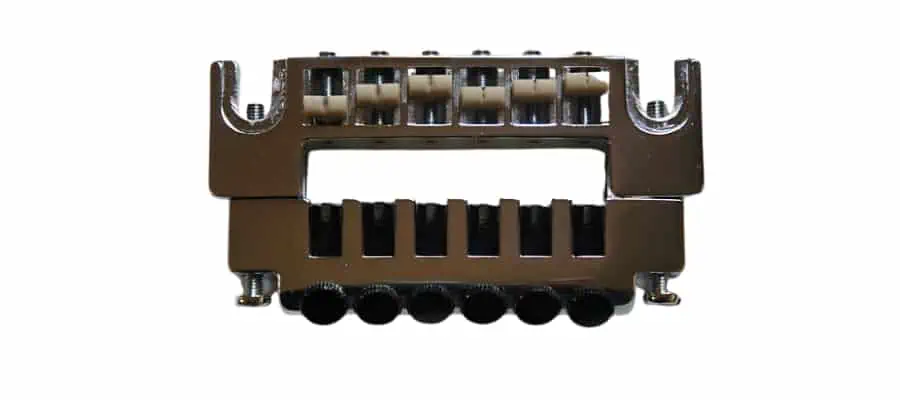
In most of his guitars, Iommi likes to have a Schaller 456 Bridge.
Heavy Leather Tony Iommi Strap
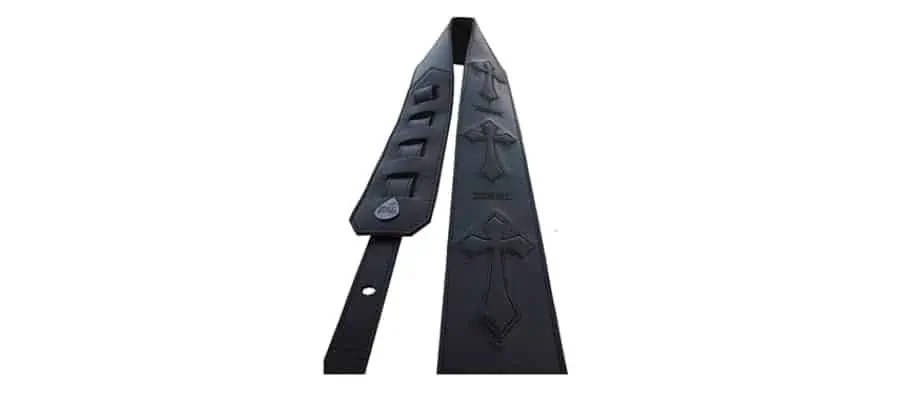
Tony Iommi’s signature guitar strap is the black Heavy Leather guitar strap.
What Is Special About Tony Iommi’s Guitar Tone?
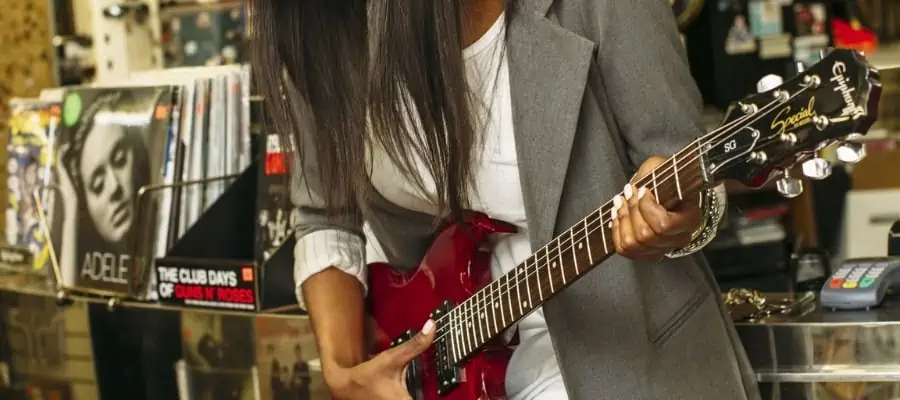
Black Sabbath is the pioneer of the heavy metal genre as they are considered the first heavy metal band ever and the band that invented heavy metal. They defined the sound, style, and limits of the genre and opened the way to different subgenres.
The center of the heavy metal sound is the iconic guitarist Tony Iommi as the main character of heavy metal with different playing techniques and guitar tones created by him. So he is one of the most important figures in rock history, who opened the way to many other bands and guitarists and showed the way to reach the killer heavy metal tones to the music world.
The Tony Iommi or Black Sabbath guitar tone is full and beefy. As he is the only guitarist in the band, he had to sound big and full, and he nailed it perfectly. Long before guitarists used large pedalboards and clones of famous amps to reach killer and heavy rock tones, Iommi was already reaching there, playing and recording crushingly heavy riffs. He was using the old-school way with massive volume levels, forcing his Marshall and Laney amps to the limit to a glorious distortion with the help of his loyal companion, his treble boost pedal.
Another unique aspect of his tone is that he uses alternate tuning to create those Doom sounds. As he wanted to ease the strain on his fingertips, he was tuning his guitar down to C#, which led to a darker and heavier sound that became one of the characteristics of the Black Sabbath tone. This practical approach was used because Iommi lost his fingertips in a work accident and needed some alterations to play guitar easier.
The way he plays is also unique, as it sets the milestones of heavy metal riffing. He uses Clean arpeggio picking, heavy slow-tempo riffing, single-note bass riffs, unison bends, and cliche pentatonic licks that add to the sound and tone creating a great heavy metal sound.
In short, Tony Iommi has one of the most unique tones in rock history, with a high amount of distortion, volume, and full sound across the frequency ranges to fill up every space possible. His dark, heavy, and pure sound is easily recognizable as it opened new doors in rock history.
How To Sound Like Tony Iommi?
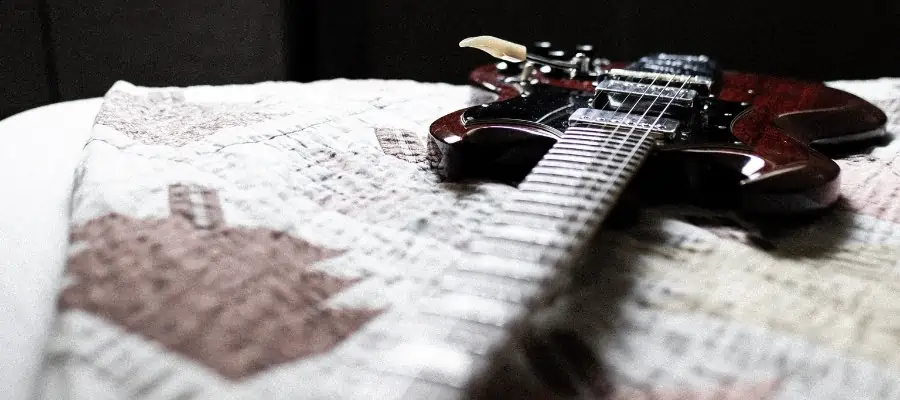
As mentioned, Tony Iommi’s sound is full and beefy with plenty of distortion. He has a heavy and dark sound with a great balance to it. His tone is quite big and full to fill up every space in the mix as he is the only guitarist in the band. To achieve his tone, you need the right gear, the right settings, as well as the right playing technique.
Recreating Tony Iommi’s tone is not hard if you know your way around the right settings and gear. Most of his tone comes from the right guitar-tube amp combination and the help of a treble booster to take you to the high distortion ranges. The playing style is also really important as Iommi has a unique playing style due to his lack of fingertips.
The guitar he uses is a Gibson SG with his signature pickups which are more aggressive versions of P-90 pickups. The amps he uses are Marshall in the first days and Laney in the latter days. They are all great vintage tube amps, which might be out of reach for many guitarists, but you can get close enough with the right settings even if you are using more affordable tube amps or modeling amps.
Well, the right settings for the amps would be fattened up bottom ends and midrange. So, you will have to add some bass and mids to your tone by turning up the mid and bass knobs on your amp. But most of the tube amps in the 70’s sounded extremely muddy with overdrive. So, you will have to find the balance between filling up your tone and not getting too muddy.
So, the bass knob should be lower than the mid knob, and it will depend on your amp, where the sweet spot might be. Just start at around 4 o’clock and try to go lower to find the perfect setting. The mids can be around 8, and the treble can be around 8 or 9. So, rolled-off bass and quite high mid and treble ranges are the keys here.
The gain should be high around 8, while the presence could be even higher around 9 o’clock. Furthermore, the guitar volume should be set to full. You should use the three-way toggle switch in the up position for riffing to add more bass and the down position for soloing to boost the high ranges.
Well, with these settings, you can get a good hard rock sound, but what pushes the tone to heavy metal ranges is actually the treble booster. Of course, this is the case if you are using a tube amp, as the treble booster will greatly help to crank up your tone for higher distortion levels. If you have a solid-state amp, you can put more gain instead or use an overdrive or distortion pedal instead. Just try to distort the sound too extreme levels.
So, an overdrive pedal like Catalinbread Sabbra Cadabra could be great for a solid-state amp as it is modeled after the Iommi’s amps, such as Laney Supergroup and Rangemaster Treble Booster. This combination can get you very close to the Black Sabbath sound.
When you get close to the tone, it is time to adapt your playing to Tony Iommi’s style to get his sound. The first thing is that he often plays with dropped tunings like D# and even C#. This is because he likes the strings to be more subtle in his fingers as he lacks the fingertips. But, it makes the guitar sound heavier and darker, which is perfect for the heavy metal ranges.
So, Iommi uses a lot of different techniques like Clean arpeggio picking, heavy slow-tempo riffing, single-note bass riffs, unison bends, and cliche pentatonic licks. For the clean arpeggios, you should add a hint of reverb and chorus to your tone. The heavy, slow tempo riffing with power chords should be done with high distortion ranges just like in the song Black Sabbath or the War Pigs.
Iommi also likes to transition between chordal ideas to single-note riffs or vice versa. The single-note riffs are mainly played in the lower strings. Another characteristic of Iommi-style playing is the unison bends, which he uses very often in his solos and riffs. He likes to add some fast vibrato to those bends, too.
And for his solos, he is loyal to basic pentatonic shapes and uses pretty common pentatonic licks. But, of course, back in the time, these were not cliches as they are today, as Iommi is one of the most replicated guitarists, which made his licks extremely common. His style includes fast left-hand vibrato, many legato trills, and fluid pentatonic legato phrasing in his soloing.
Tony Iommi Guitar Rig Examples
Budget
Guitar – Epiphone SG Special Satin E1 Electric Guitar
- Poplar Body with a Satin Finish
- Fretboard Material: Okoume
- 60s SlimTaper D Neck
- 22 Medium jumbo frets
Amp – Vox AV30 – 30-watt 1×10″ Analog Valve Modeling Amplifier
- 30 Watts of power through a custom VOX 10" speaker
- True analog circuit design complete with two 12AX7 tubes
- Achieve authentic tones with two sets of eight, all-analog amp models
- Effects Loop and external speaker output; Unique cabinet design enhances...
If you want to get close to Black Sabbath sound with a small budget, your best bet is to go with a simple SG-style guitar like Epiphone SG Special Satin E1 Electric Guitar, along with a modeling amp that is specialized in replicating the valve amp sounds. So, the Vox AV30 would be a great choice. As it is a modeling amp, you won’t need a pedal setup for this rig.
Mid-Range
Guitar – Epiphone Tony Iommi SG Special Electric Guitar
Amp – Vox AC15C1 1×12″ 15-watt Tube Combo Amp
- 10 Watt tube combo offering the classic VOX Top Boost tone
- EL84 power tubes; 12AX7 preamp tubes
- Custom 10" VX10 speaker made by Celestion
- Simple but effective Gain, Bass, Treble, Reverb, and Master Volume controls
Pedal – Catalinbread Sabbra Cadabra Overdrive Pedal
- Range, Gain, Presence and Vol 4 controls
- Optimized for drop-tuning but works equally well for standard tuning thanks...
- Customize the treble-booster section of the circuit and adjust it anywhere...
- Custom-tuned Rangemaster-based booster combined with the pre-amp section of...
If you have a more relaxed budget, I recommend the special Epiphone guitar made for Tony Iommi, Epiphone Tony Iommi SG Special Electric Guitar. When you combine it with Vox AC15C1 1×12″ 15-watt Tube Combo Amp, the smaller version of the amp Iommi used in the ’80s, you can get pretty close to his tone with the right settings. A little help from the Catalinbread Sabbra Cadabra Overdrive Pedal to boost your tone even to more extreme distorted ranges will give you a great base Black Sabbath tone.
High-End
Guitar – Gibson Tony Iommi SG Special – Vintage Cherry
Amp – Laney TI100 Tony Iommi Signature Amp
Cabs – Laney GH TI 412S Tony Iommi Signature Cabs
Pedal – Catalinbread Sabbra Cadabra Overdrive Pedal
- Range, Gain, Presence and Vol 4 controls
- Optimized for drop-tuning but works equally well for standard tuning thanks...
- Customize the treble-booster section of the circuit and adjust it anywhere...
- Custom-tuned Rangemaster-based booster combined with the pre-amp section of...
Pedal – Catalinbread Naga Viper
- Based on the Dallas Range master
- Range knob for continuous control over EQ
- Head knob to control boost gain
- True Bypass Switching
Pedal – MXR M101 Phase 90
- 9V Batteries Required, best with Polaroid 9V Batteries.
- Rich, warm analog tone
- Add shimmery velocity and dramatic swooshing to your tone
- The timeless phase shifter used on many classic recordings
Pedal – Chicago Iron Parachute Wah
For guitarists without much limits on the budget, the best option is to have the exact combination Tony Iommi is using, which is the Gibson Tony Iommi SG Special with Laney TI100 Tony Iommi Signature Amp. When you add some effect pedals like Catalinbread Sabbra Cadabra Overdrive Pedal for extra distortion and Catalinbread Naga Viper for boosted high ranges for solos and riffs along with MXR M101 Phase 90 and Tychobrahe Wah Pedals for some versatility for different tracks, you can play exact tones of Tony Iommi almost in any song he played.
Conclusion
The journey for achieving the iconic Black Sabbath sound and Tony Iommi tone, to recreate the iconic heavy metal sound is more about trial and error and finding the sweet spots between the settings. Tony Iommi, the godfather of heavy metal, has one of the most recognizable and unique guitar tones ever as he crafted the heavy metal genre by himself.
His main guitar has always been the Gibson SG, and his choice of amps were first Marshall tube amps and signature Laney valve amps later. The trick to getting his sound is a high gain, mids, and treble, along with rolled-off low-end frequencies.
Drop tunings, heavy distortion, palm muting, power chords, and slow, heavy riffing are all parts of his sound, which all can be replicated pretty straightforwardly. By following the steps and examples in this article, you will see that it is not that hard to replicate that iconic heavy metal tone with a dark, powerful, and heavy sound.
By learning the ways of Tony Iommi, you will also learn the ways to understand heavy metal style and sound. Whether you are a beginner or an experienced musician, it is important to explore new genres and new approaches to music to grow and change as a musician. And Tony Iommi is a great place to start!
If you found this article useful, you may want to save this pin below to your Guitar board.
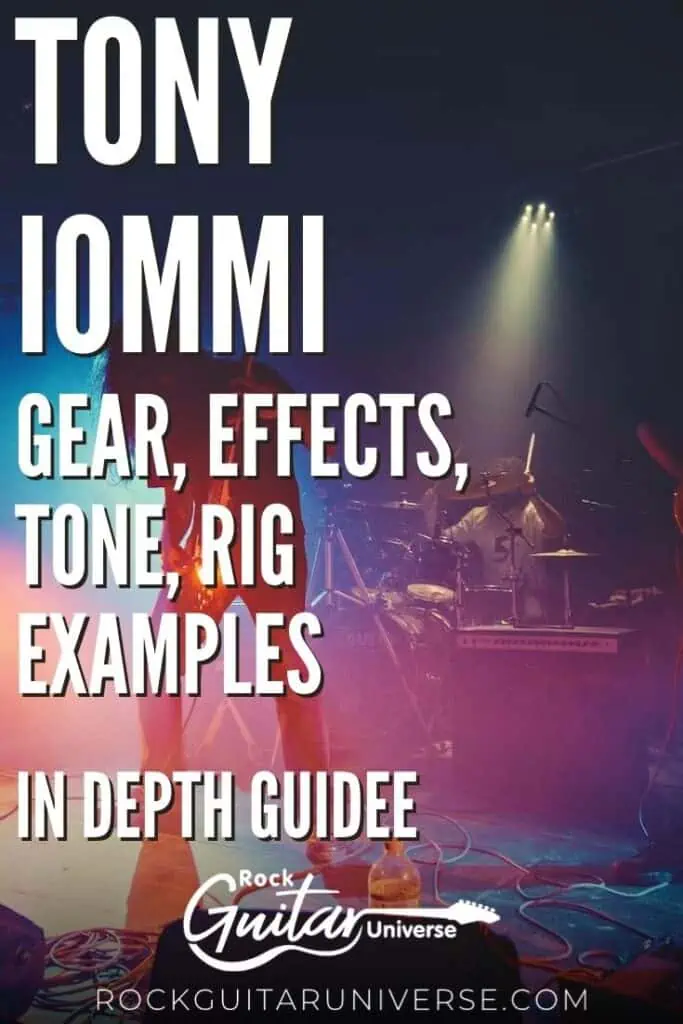
Last update on 2024-07-27 / Affiliate links / Images from Amazon Product Advertising API
Recent Posts
Tuning your guitar to E Flat, also known as E♭ tuning or half-step-down tuning, involves lowering each string by a half step. This creates the notes E♭, A♭, D♭, G♭, B♭, E♭ or D#, G#,...
50 Campfire Guitar Songs To Ignite Your Next Singalong - Chords Included
Gathering around a crackling campfire with friends and a guitar is one of life's simpleest pleasures. Picture yourself strumming the chords as everyone belts out the chorus under a starry sky. From...

